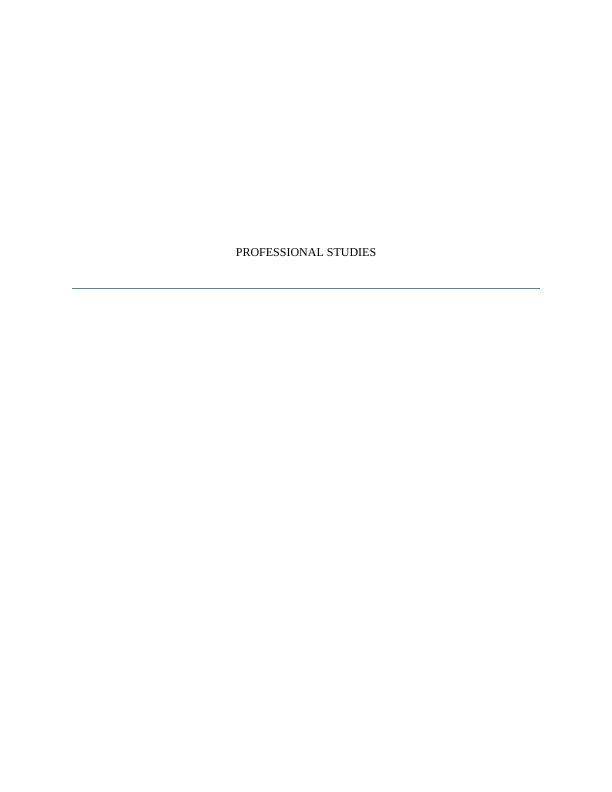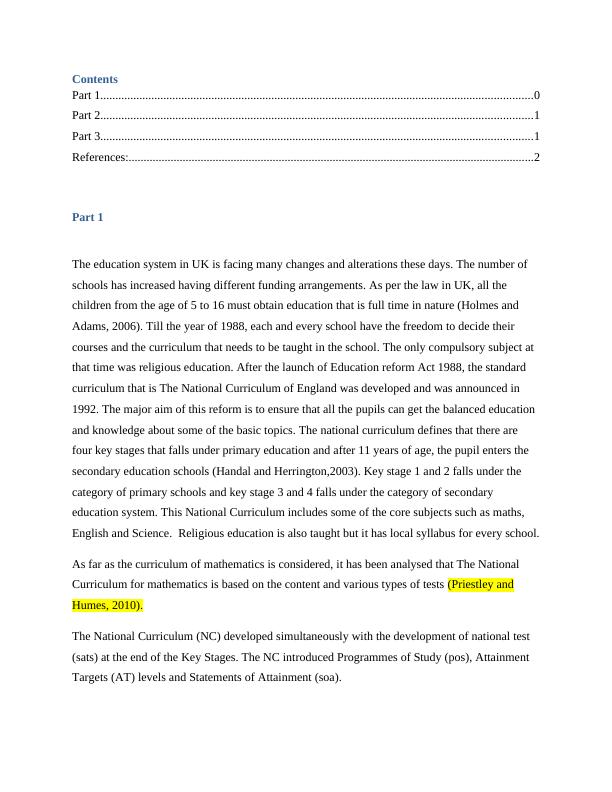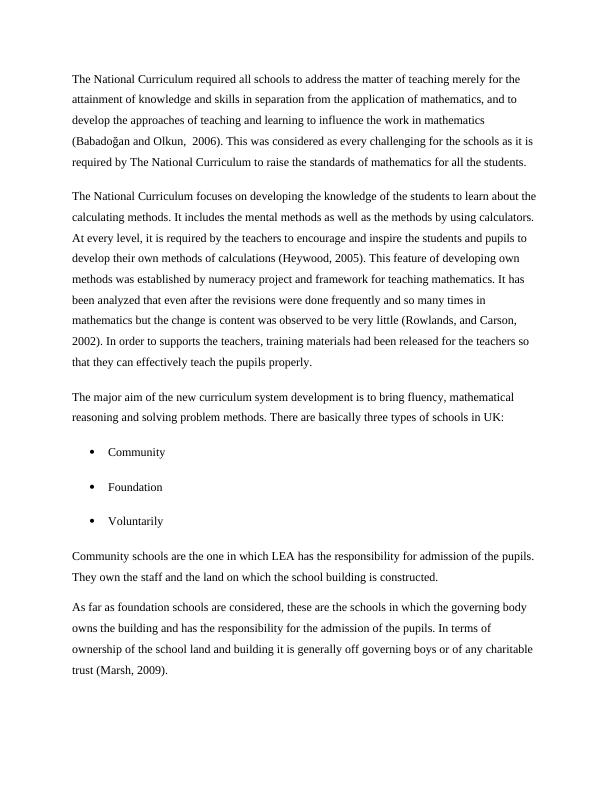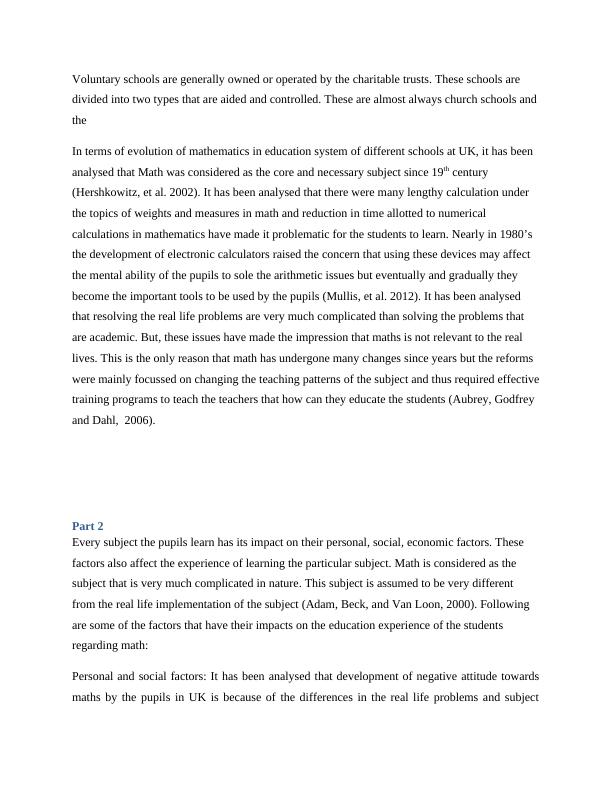Mathematics Education in UK: Curriculum, Factors Affecting Learning Experience, and Recent Policies
11 Pages3828 Words370 Views
Added on 2023-06-15
About This Document
This article discusses the National Curriculum for Mathematics in UK, including the four key stages and core subjects. It also explores the factors affecting the learning experience of students in mathematics, such as personal, social, historical, and economic factors. Additionally, it covers recent policies like the Pupil Premium program and Teaching Scotland's Future.
Mathematics Education in UK: Curriculum, Factors Affecting Learning Experience, and Recent Policies
Added on 2023-06-15
ShareRelated Documents
End of preview
Want to access all the pages? Upload your documents or become a member.
Professional Studies Assignment
|11
|3819
|130
Impact of National Curriculum on Primary Teachers
|10
|2535
|1
A Form of Curriculum
|9
|2247
|449
The Impact of Different Policies on Primary School
|6
|1251
|391
Unit 2 Assessment Task of Schools as Organisation
|45
|14466
|227
Mathematics Teaching Duties and Responsibilities
|4
|591
|34




